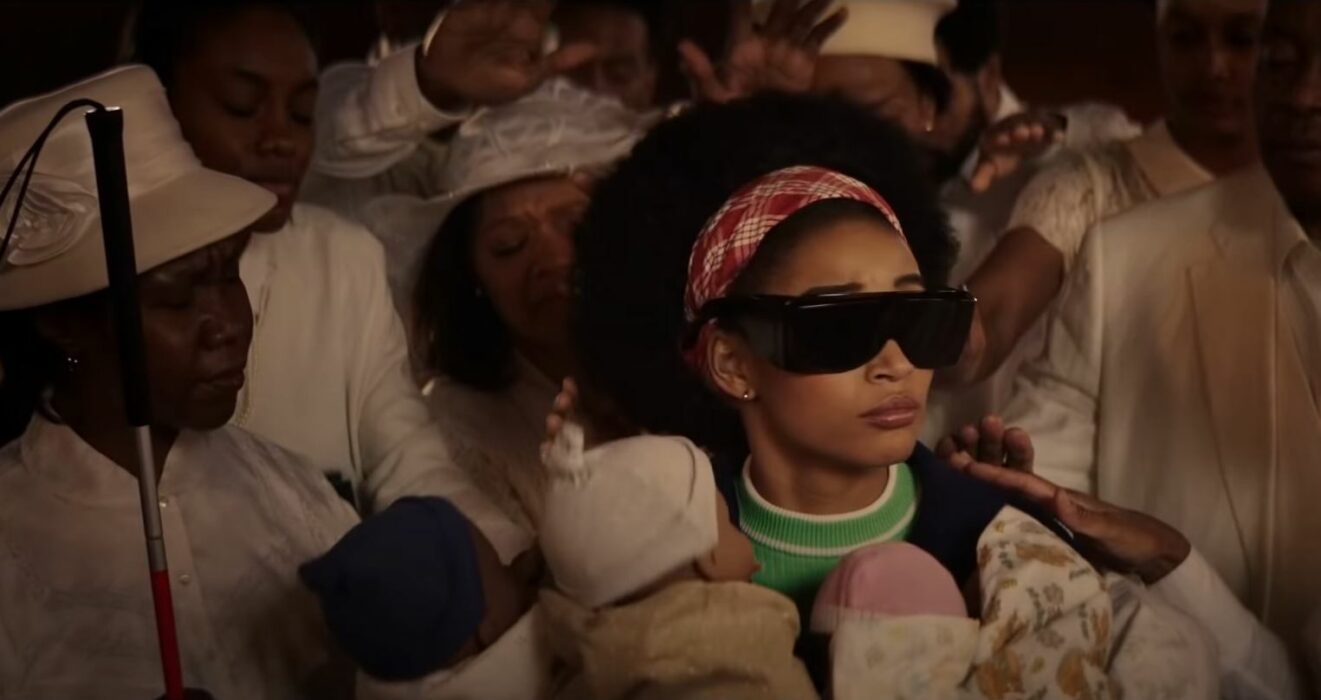‘Ziwe’ Season Two Premiere Lampoons Hollywood’s Affinity for Movies About Black Suffering
"Rated G for Gimme That Oscar."

Ziwe Fumudih is back on Showtime for the sophomore season of her self-named show Ziwe. As the executive producer and host, Ziwe started the show on YouTube and Instagram live (to a degree) before being picked up by a major network. While Ziwe features hints of Watch What Happens Live With Andy Cohen and The Eric Andre Show, Ziwe definitely has her own flavor of engaging with uncomfortable topics in an amusing way. If that wasn’t clear from season one, the first episode of season two makes it crystal clear as she interviews Charlamagne tha God. In between clips of this hilarious interview, commercial breaks feature the world premiere of a new movie called Black Pain.
The trailer joked about how no one knew what time period it was, and other elements of the trailer give this same vibe. The costumes, typography, and dialogue give us a range of about 110+ years. The narrator ominously reminds us, “Black pain is timeless […], Black pain is everywhere.”
Do you know what else is pretty on par besides the lead role (of Penny Pain) going to a biracial character (Amandla Stenberg) regardless of parentage? Not only is this supposedly created by “the non-Black producers who brought you The Help [and] The Greenbook,” but every Black publication mentioned saw right through it in this fictional trailer. While the New York Times called it “Harrowing,” Ebony just said, “Bad!”
Awarding only trauma
With the exception of Moonlight, Spider-Man: Into the Spider-Verse, and some others that are arguable at best, most movies that get recognized for awards and feature Black stories are centered on Black pain. This is just the nomination process. If you want to win and don’t have a white savior character, the movie has to be about slavery or segregation. You can say, “I don’t care about awards,” but these awards have power and influence what kind of movies get made and how big their budgets are.
In a 2018 article for Indiewire, Shadow and Act founder Tambay Obenson wrote:
To be sure, these films should certainly exist. They can tell stirring stories, with great performances by the actors who lead them. However, the emphasis on crisis, while certainly a reality, tells an incomplete story at the expense of more prosaic depictions. Movies that portray ordinary stories about black lives can be profoundly instructive. However, the unspoken implication is they don’t represent what is perceived to be authentic black life; only white stories have that privilege.
From highlighting the ridiculously narrow limitations of Black roles to only showing overt racism (that brick read “Look Up From: White Racist”), this trailer was missing one thing that would keep it from being an actual Oscar winner … a white savior. Don’t worry though, Amber Ruffin and Seth Meyers did a sketch on this in 2019. Later in the interview, another commercial break shows the sequel, Black Pain 2: Black Joy. You can watch the full episode for free on YouTube, and the rest of the season on Showtime.
(featured image: Showtime)
—The Mary Sue has a strict comment policy that forbids, but is not limited to, personal insults toward anyone, hate speech, and trolling.—
Have a tip we should know? tips@themarysue.com